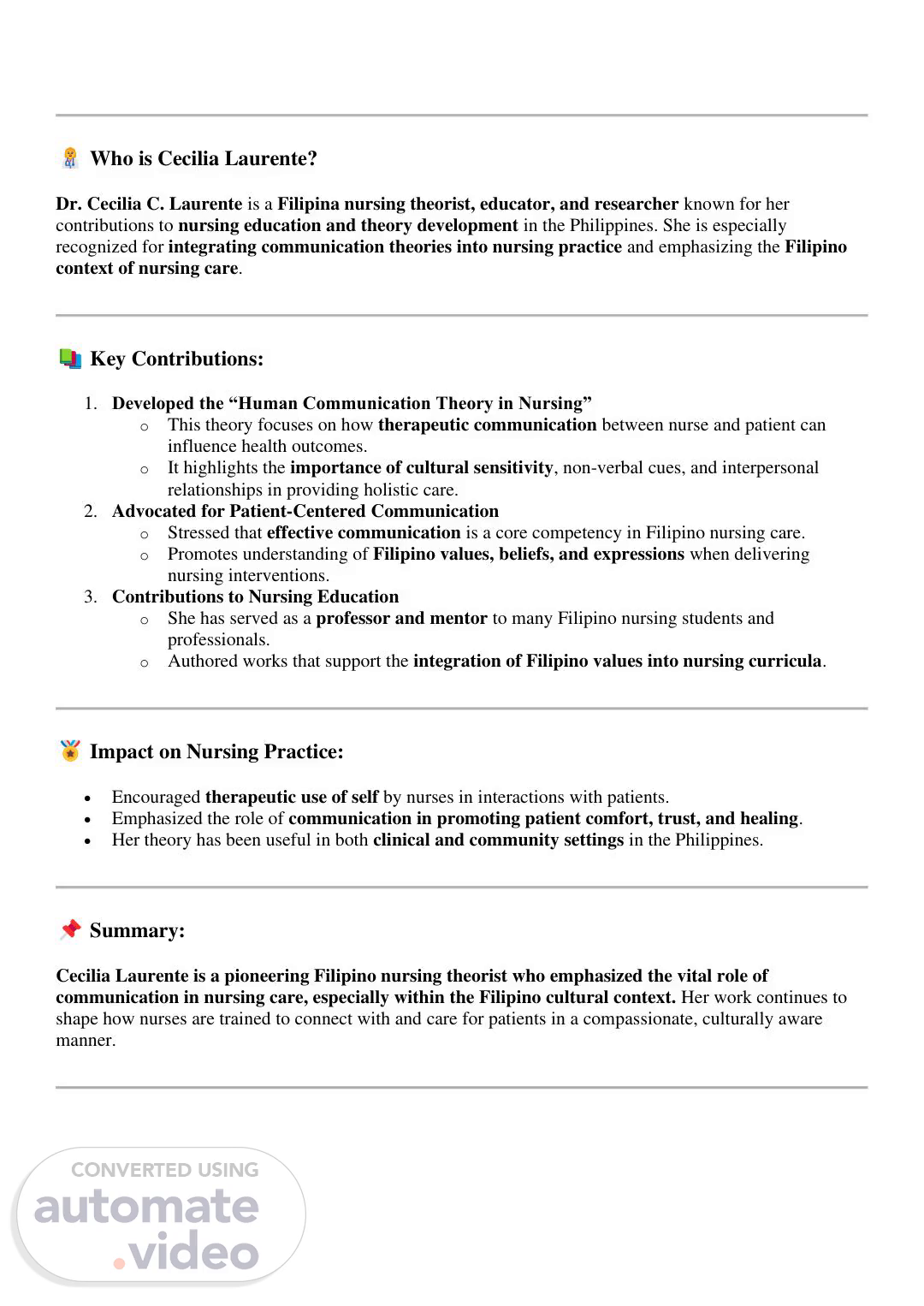Scene 1 (0s)
[Virtual Presenter] Who is Cecilia Laurente? Dr. Cecilia C. Laurente is a Filipina nursing theorist, educator, and researcher known for her contributions to nursing education and theory development in the Philippines. She is especially recognized for integrating communication theories into nursing practice and emphasizing the Filipino context of nursing care. Key Contributions: 1. Developed the “Human Communication Theory in Nursing” o This theory focuses on how therapeutic communication between nurse and patient can influence health outcomes. o It highlights the importance of cultural sensitivity, non-verbal cues, and interpersonal relationships in providing holistic care. 2. Advocated for Patient-Centered Communication o Stressed that effective communication is a core competency in Filipino nursing care. o Promotes understanding of Filipino values, beliefs, and expressions when delivering nursing interventions. 3. Contributions to Nursing Education o She has served as a professor and mentor to many Filipino nursing students and professionals. o Authored works that support the integration of Filipino values into nursing curricula. Impact on Nursing Practice: Encouraged therapeutic use of self by nurses in interactions with patients. Emphasized the role of communication in promoting patient comfort, trust, and healing. Her theory has been useful in both clinical and community settings in the Philippines. Summary: Cecilia Laurente is a pioneering Filipino nursing theorist who emphasized the vital role of communication in nursing care, especially within the Filipino cultural context. Her work continues to shape how nurses are trained to connect with and care for patients in a compassionate, culturally aware manner..
Scene 2 (1m 47s)
[Audio] Early Life and Background of Dr. Cecilia C. Laurente Dr. Cecilia Laurente is a Filipina nurse, educator, and theorist who made significant contributions to nursing theory and education in the Philippines. She likely pursued her nursing education in the Philippines, where she later became affiliated with top academic institutions, including the University of the Philippines College of Nursing (UPCN)—a premier institution for nursing education in the country. Her early work was deeply rooted in the Filipino cultural context, which heavily influenced the development of her Human Communication Theory in Nursing. She dedicated much of her career to understanding how communication, culture, and environment affect the nurse-patient relationship, which may have stemmed from observing communication gaps in local healthcare settings..
